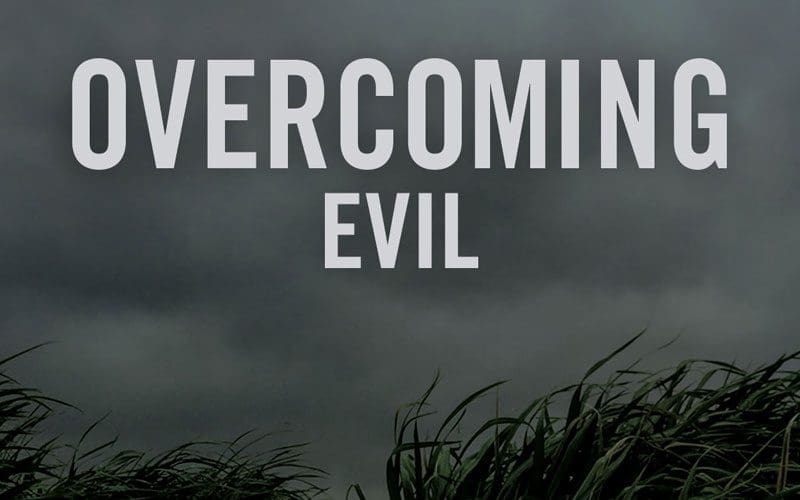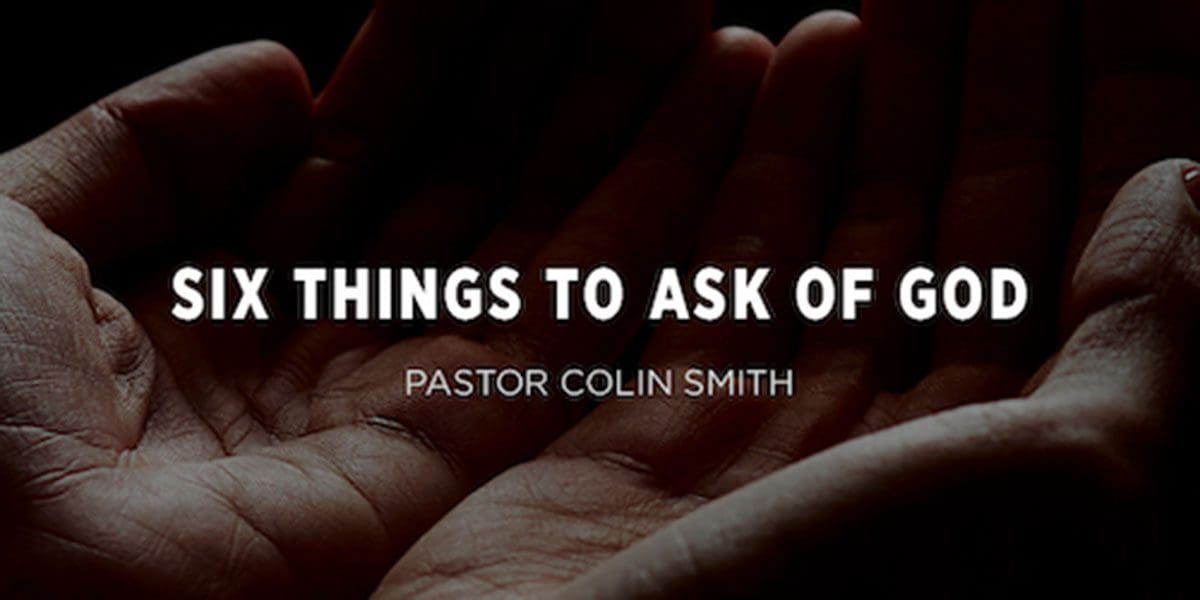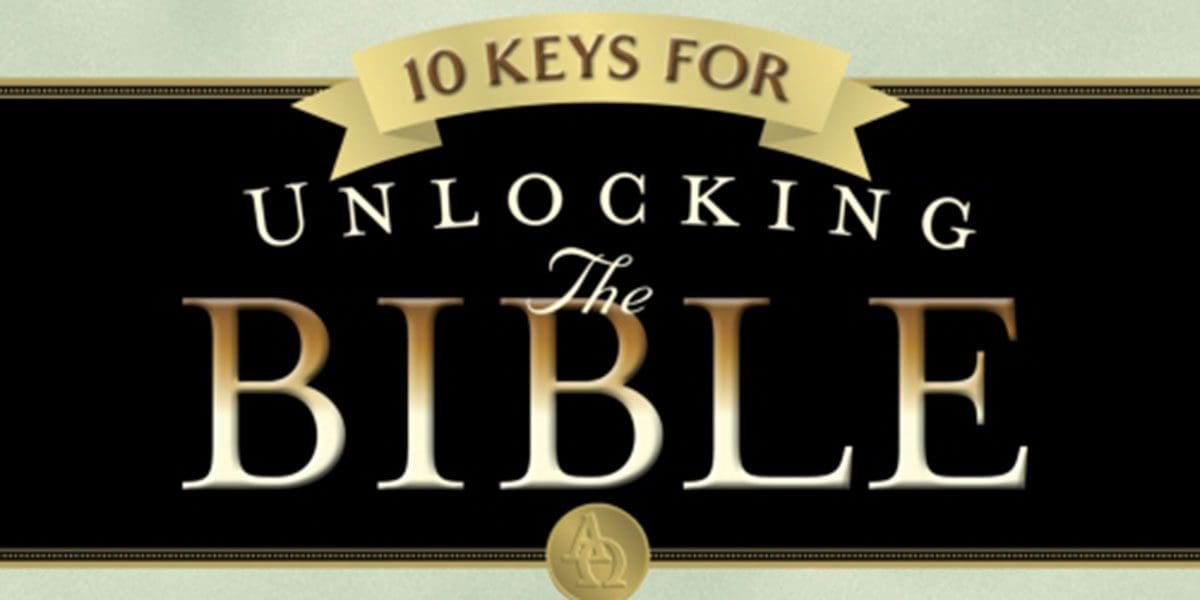Do not be overcome by evil, but overcome evil with good. (Romans 12:21)
Friends, you don’t need me to tell you that these are difficult days in our country. Fifteen years on from the terrorist attack on the twin towers, the threat of terrorist violence still hangs over us, and over freedom-loving people around the world.
After years in which many had hoped for progress, anger and violence over issues of race have reached new intensity. Loss of civility and manners in public life is producing a new meanness of spirit that often makes life increasingly unmanageable in the classroom, in the work place, and all too often in the home.
One of our seniors said to me recently that she could not remember a time in her entire life when so many people were so angry so much of the time.
On top of all this, the shared sense of right and wrong that has bound our people together in this country for centuries, has in large measure been discarded and swept away. Our nation is deeply divided over issues of life, marriage, gender and increasingly over death as well. Having lost the sense of living under the authority of God, our culture increasingly feels the liberty to take the great issues of life into our own hands and to do with them as we please.
All over our country, believing people are asking, “What in the world are we to do?” The answer to that question is found in Romans chapter 12. These verses describe exactly what God’s people are to do when we find ourselves surrounded by growing evil. So over these next months, we will be camping out in Romans 12. My prayer for this series is that God will use his Word to calm our fears, renew our hope, and strengthen our resolve.
These next two months will be a time when people of all political persuasions in our country will be holding their breath. A growing number of people will be stirred into a frenzy. I invite you to join me in this prayer: “Lord, use your Word to calm my fears. Lord, renew my hope. Lord, strengthen my resolve.”
These verses in Romans 12 have come to me with fresh force as I have studied the historical background of the book of Romans. I know for some of you the mention of the word ‘historical’ may make your eyes glaze over and cause you to reach for your cell phone. Don’t do that! Hang in there with me!
When you see what was going on in Rome when Paul was moved by the Holy Spirit to write these words that are before us today, you will feel the power and the relevance of them in a whole new way.
The Timeline
The Roman Empire
During the first 70 years of the first century there were five Roman emperors.
1. The first of these was Augustus (27BC-14AD).
We read about Augustus in Luke: “In those days a decree went out from Caesar Augustus that all the world should be registered” (2:1). Augustus was the emperor of Rome until he died in the year 14AD.
2. He was followed by Tiberius (14-37AD).
We also read about Tiberius in Luke: “In the fifteenth year of Tiberius Caesar… the Word of God came to John son of Zechariah in the wilderness” (3:1). The fifteenth year of Tiberius would have been 29AD.
3. He was followed by Caligula (37-41AD).
After Tiberius, came four traumatic years in which Rome was ruled by the infamous Caligula. Six months into his reign Caligula had an illness that seems to have turned him into a tyrant who was increasingly losing his mind.
Caligula ordered an altar to be built to himself. The Roman historian, Suetonius, records, “He ordered all the images of the gods… to be brought from Greece, that he might take the heads off, and put on his own. He also instituted a temple and priests… in honor of his own divinity. In his temple stood a statue of gold, the exact image of himself, which was daily dressed in garments corresponding with those he wore himself.” [1]
Caligula’s excess and his indulgence knew no bounds. He was notorious for his orgies in the imperial palace. When it came to money, Suetonius tells us about a line that Caligula often repeated, “A man ought either to be a good economist or an emperor.” [2] These four years were a nightmare for Rome and there was widespread relief when Caligula was finally assassinated by two of his own bodyguards.
4. After Caligula, came Claudius (41-54AD).
He is referred to in Acts, where we read about a married couple, Aquila and Priscilla, who moved to Corinth from Italy, “because Claudius had commanded all the Jews to leave Rome” (18:2). There are some hair-raising stories about Claudius, but his rule brought some relief from what had gone before and from what was soon to come.
5. The next emperor was a man by the name of Nero (54-68AD).
Nero came to power in the year 54AD and ruled for 14 years until he took his own life at the age of 32, in 68AD. Here are three things that you need to know about Nero…
(i) Nero had a good singing voice and entered many singing competitions.
Of course, he always won! Can you imagine being on the judge’s panel? Nero also put on concerts, featuring himself, in which the audience was effectively locked in! Suetonius records, “Many of the spectators, being quite wearied with hearing and applauding him, because the town gates were shut, slipped away privately over the walls or, counterfeiting themselves dead, were carried out for their funeral.”
(ii) Nero was a man of extraordinary cruelty.
He arranged for the murder of his first wife, his aunt, and his own mother. He tried to poison his mother three times, unsuccessfully!
(iii) Nero was, at different times, married to three women and two men.
Suetonius records, “He gelded [castrated] the boy Sporus and endeavored to transform him into a woman. He even went so far as to marry him, with all the usual formalities of a marriage settlement… When the ceremony was over, he had him conducted like a bride to his own house and treated him as his wife… This Sporus he carried about with him… dressed in the rich attire of an empress; kissing him from time to time as they rode together.” [3]
Suetonius – a secular historian who was no friend of Christianity – sums up Nero’s life in these words, “The whole of [his] life was one continued scene of lewdness, sensuality… cruelty and folly.” [4]
That’s what was happening in the Roman Empire in the first century.
The Early Church
Let’s put some key events in the story of the early church on this timeline.
1. Pentecost was in the year 33AD. [5]
Pentecost was that great day when the Holy Spirit was poured out and the church was born. The events in the book of Acts, which cover the next 30 years, are set against the background of Caligula, Claudius, and Nero.
2. The book of Romans was written in the winter of 56/57AD.
Paul wrote Romans under the inspiration of the Holy Spirit while he was in Corinth. So when you read Romans 12 (and then what Paul says about submitting to governing authorities in Romans 13!) it is good to remember that Nero was the emperor at the time.
Shortly after the book of Romans was written, false charges were brought against Paul by people in Caesarea who wanted to stop him from preaching the gospel. Paul was a Roman citizen and every citizen had the right, if he was accused of an offence, to a trial in Rome.
Realizing that he had little hope of a fair trial in Caesarea, Paul said, “I appeal to Caesar!” And Festus, the local governor, said, “To Caesar you have appealed; to Caesar you shall go” (Acts 25:11-12). So follows the story of how Paul was sent to Rome. The ship in which he sailed was caught in a storm and wrecked (see Acts 27).
3. Paul arrives in Rome (60AD).
In the last chapter of the book of Acts, Paul arrives in Rome, and we are told that Paul stayed there under house arrest for 2 years (60 and 61AD), after which it appears he was released.
4. Two years after that, we know that the apostle Peter was in Rome (63AD).
While Peter was in Rome, he wrote the first letter of Peter as we have it in the New Testament. Moved by the Holy Spirit, Peter spoke prophetically in that letter, “Do not be surprised at the fiery trial when it comes upon you to test you” (1 Pet. 4:12).
5. One year later, the city of Rome was set on fire (64AD).
The Roman historian, Tacitus, records that of the 14 precincts of the city only four were undamaged. “Three were utterly destroyed and in the other seven there remained only a few mangled and half burnt traces of houses.” Tacitus records: “At the very time that Rome burned, he [Nero] mounted his private stage and sang…” This is where we get the phrase “fiddling while Rome burns.”
It was widely rumored that Nero himself had started the fire and that he had done this to create the opportunity of building a greater and a grander city. Nero needed to find a scapegoat, and so he blamed the fire on the Christians.
The Roman historian, Tacitus, who was no friend of Christianity, records the events for us: “Therefore, to scotch the rumour, Nero substituted as culprits, and punished with the utmost refinements of cruelty, a class of men… whom the crowd styled ‘Christians.’ ‘Christus,’ from whom they got their name, had been executed by sentence of the procurator Pontius Pilate when Tiberius was emperor…”
“First, then, those who confessed themselves Christians were arrested; next, on their disclosures, a vast multitude were convicted, not so much on the charge of arson as for hatred of the human race.” So you see what was being said against the first Christians: They did not fit with where the culture was going, so they were branded as ‘haters.’
“Their death was made a matter of sport; they were covered in wild beasts’ skins and torn to pieces by dogs; or were fastened to crosses and set on fire in order to serve as torches by night when daylight failed. Hence… there arose a feeling of pity, because it was felt that they were being sacrificed, not for the common good, but to gratify the savagery of one man.” [6]
Notice how quickly the world changed for the early Christians. In the late 50s, Paul could say “I appeal to Caesar,” confident that, even under a bad emperor, he could count on a Roman court to uphold his freedom to preach the gospel. Within just five or six years, the system of justice had collapsed so completely that Christians were being thrown to lions in a circus.
When you find yourself saying, “Our freedoms are under threat, and morality as we know it, is being swept away,” remember that Christians have been here before. What we have in Romans 12 are the words that God spoke to his people in Rome after they had endured the excesses of Caligula, and while they were enduring the nightmare of Nero.
Two Real Possibilities
How are Christians supposed to respond in times of rapid social change? What does God say to these Christians and therefore to us today? “Do not be overcome by evil, but overcome evil with good” (Rom. 12:21).
Knowing the evils these Christians were facing in Rome has helped me to see how powerfully these verses speak to us today. The words “Do not be overcome by evil, but overcome evil with good” are a summary of the priorities that are laid out for us in verses 9-21.
What “overcoming evil with good” looks like is unpacked and explained for us in the verses that come before. Notice that these verses begin and end with the theme of evil: “Abhor what is evil; hold fast to what is good” (12:9), “Do not be overcome by evil, but overcome evil with good” (12:21). So although this verse comes at the end, we can think of it as a kind of headline over these verses that are before us for the next two months.
a. It is possible to be overcome by evil.
The fact that God says, “Do not be overcome by evil” indicates the real possibility that this is something that can happen, and that it does happen. God says, “Do not let this happen to you!” What would it look like for a person to be overcome by evil?
(i) Here is a person who fills her mind and heart with the drip-feed, fear-mongering of the news channels. It is always on in her house, and over time she becomes weighed down with the weight of evil in the world. She is gripped with fear, and gradually she loses her peace and her joy. What is that but to be overcome be evil?
(ii) Here is a student on a sports team at school. Most of his teammates are pursuing a completely different lifestyle from what he has learned at home and he feels the pressure to conform. He goes to the parties, he tries the drugs, and he experiments with sex. What is that but to be overcome by evil?
(iii) Here is a person at work. The culture is brutal. It is a dog-eat-dog world. It is a devour-or-be-devoured environment. Pride fills the air. Cynicism is rife. Understanding and compassion are rarely to be found, and over time a hardness, a growing cynicism creeps into his heart. What is that but to be overcome by evil?
What evil have you suffered that might threaten to overcome you? Have you suffered violence? Have you been discriminated against? Have you been abused? Verbally? Emotionally? Sexually?
I think about people in this congregation whose lives have been scarred by neglect or abuse from parents who should have loved them. I think of people who have been falsely accused, wrongfully imprisoned, people in this congregation whose loved ones have been violently killed. These are great evils.
If you have suffered a great evil in your life, you know that the toughest challenge you face is to make sure that it does not overcome you. How easy it would be for you to stoke a hatred and live off the energy of that, and be consumed by an inner rage, and never really to be at peace. It is possible to let the wounds of your life come to define you so that you lose your confidence, your peace, and your joy.
Being overcome by evil can happen to disciples of Jesus. It is not beyond us to say, “Fight fire with fire,” or “Give as good as you get.” James and John wanted to call down fire from heaven on the enemies of Jesus. Peter drew his sword when the soldiers came to the Garden of Gethsemane. What is that but to be overcome by evil?
But there is another possibility here in this verse: “Do not be overcome by evil, but overcome evil with good” (Rom. 12:21).
b. It is possible to overcome evil with good.
Paul is writing to Christians in Rome and he is telling them, “The evils you have suffered do not need to define you. The evils of the culture in which you live do not need to shape you. You can overcome the evil that was done to you and you can overcome the evil that is around you.” This is a marvelous message of hope!
Now what does it actually look like to overcome evil with good? That’s what we are going to discover over these next weeks in Romans 12, so I hope you will commit to being here and to taking this journey. But let me end today by giving you a trailer for what is to come. Everything in Romans 12 is written to people who are ‘in Christ.’ This chapter begins with the word ‘therefore.’ “I appeal to you therefore, brothers” (Rom. 12:1).
Everything in Romans 12 is to be understood in the light of not only Rome, but against the backdrop of Romans 1-11. And a two-word summary of these chapters would be ‘in Christ.’ Paul speaks about…
- The righteousness of God through faith in Jesus Christ (Rom. 3:22).
- The redemption that is in Christ Jesus (Rom. 3:24).
- No condemnation for those who are in Christ Jesus (Rom. 8:1).
Faith joins you to Jesus in the bond of a living union, in which what you were is buried with him because of his death, and you are raised to a new life in which God gives you the power and the presence of his Holy Spirit.
The evils you have suffered may have defined the person you were, but they cannot possibly define the person you are. It is being ‘in Christ’ that defines you and “[nothing] will be able to separate [you] from the love of God that is in Christ Jesus our Lord” (Rom. 8:39).
That’s the heart of Romans 1-11. Now, says Paul: “Therefore, in the light of all that it means to be in Jesus Christ, do not be overcome by evil, but overcome evil with good.”
The One Who Overcame Evil with Good
Think of the evils that were perpetrated against Jesus. You’ve been thinking about the injustice you’ve endured. What about the injustice he endured? What about the violence he suffered? What about how he faced all this alone, because he was abandoned by his friends?
Think about the physical and verbal abuse that was poured out on him. Think about how people mocked him and spit on him, and think about how he was beaten over the head again and again. None of us has endured evil as Jesus did. But Jesus Christ was not overcome by evil! He overcame evil with good. What was the good with which he overcame evil?
It was the good of faith. He trusted the Father, even when he could not see what the Father was doing. “My God, my God, why…?” Yet he said, “into your hands I commit my Spirit.”
It was the good of hope. For the joy set before him, he endured the cross. And he was able to deal with the shame (Heb. 12:2).
It was the good of love. Right there on the cross, Jesus prayed for the enemies who persecuted him. “Father, forgive them, for they know not what they do” (Luke 23:34). And in that prayer, he created room for them to repent.
A good response to the Scriptures today would be to come to God and say, “I don’t want to be overcome by evil! I don’t want to be defined by the evils I have suffered. I don’t want to be shaped by the evils of this world in which I live.”
There is hope for you in Jesus Christ today. Evil did not overcome him, and if he is with you, and he is for you, and he is in you, it will not overcome you either.
[1] Suetonius, The Twelve Emperors, page 172 (Kindle e-book).
[2] Ibid., p. 179.
[3] Ibid., p. 227.
[4] Ibid., p. 244.
[5] Some argue for 30AD, but 33AD is the traditional date, and is well attested.
See https://www.biblicalfoundations.org/when-was-jesus-born-and-when-did-he-die/
[6] Cited in F. F. Bruce, The Spreading Flame, p.142 (from Tacitus, Annals, XV, p. 44), Paternoster, 2005.





